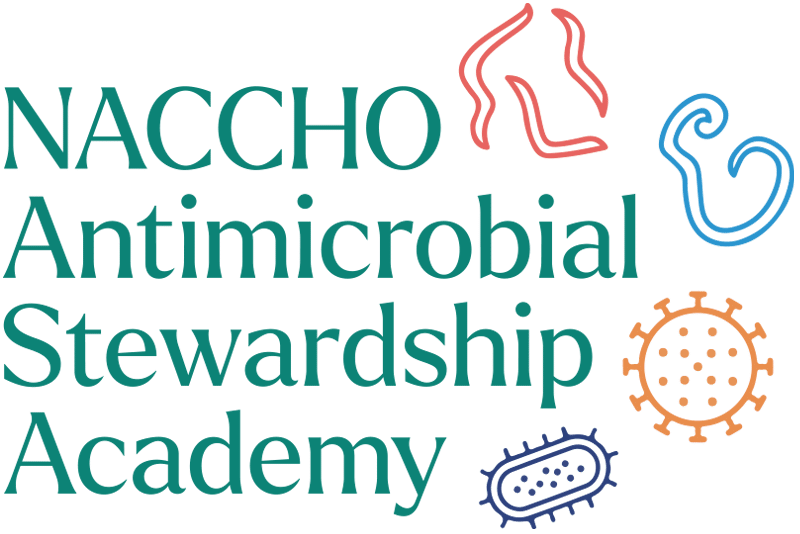The training will include skills in how to:
- Perform antimicrobial stewardship audits;
- use surveillance skills to collect, understand and utilise antimicrobial resistance data;
- advocate for antibiotic resistance issues affecting Aboriginal and Torres Strait Islander people to policy makers and the National Antimicrobial Resistance (AMR) Strategy.
AMR is a critical risk, affecting Australia’s Aboriginal and Torres Strait Islander people at some of the highest reported rates in the country. The World Health Organisation declared AMR as one of the biggest health threats, with up to 10 million lives lost by 2050, extreme poverty for 24 million by 2030 and billions of dollars in health care costs and lost productivity for the global economy.
The Antimicrobial Academy provides a meaningful opportunity to transfer skills to health professionals working in the Aboriginal and Torres Strait Islander health sector, to create a cadre of antimicrobial stewards, advocates and spokespeople to partner with and continue to improve health care delivery, research platforms and advocacy.
Skills transfer for health care workers and health professionals to lead and advocate on safe prescribing of antimicrobials, improved stewardship and advocacy to ensure that Aboriginal and Torres Strait Islander Australians are included in national efforts to address antimicrobial use and resistance.
The NACCHO ASA is a five-month fortnightly program commencing the second week in April 2024 and concluding in mid-September 2024. These sessions are held online during the working day, as best fits in with the Academy Team/Advisory Group and Lecturers. We will discuss the timings with you, but it will most likely be on a Wednesday afternoon, alternating with a Thursday afternoon each fortnight.
A copy of the program can be downloaded here.
NACCHO will be running another AMS Academy in early 2025, so please check back here in late 2024 for more information.
Applications are currently closed for the academy.
NACCHO will be running another AMS Academy in early 2025, so please check back here in late 2024 for more information.
The National Antimicrobial Resistance Strategy
The National Antimicrobial Resistance Strategy 2020 and beyond
National Centre for Antimicrobial Stewardship (NCAS)
Antimicrobial Use and Resistance in Australia Surveillance System: AURA
Antibiotic resistance is an even greater challenge in remote Indigenous communities – 2019, The Conversation
An urgent need for antimicrobial stewardship in Indigenous rural and remote primary health care – 2019, MJA
Any health worker or health professional working in the Aboriginal and Torres Strait Islander health sector.
Candidate nominations to participate will come from interested health care organisations who support the candidate to develop skills and implement change in their organisation.
Upskilling in antibiotic use, audit, stewardship, surveillance, and resistance.
Sessions will be delivered fortnightly online via Microsoft Teams, during work hours with organisational support, at no cost.
Benefits of participating in the Academy are: attainment of CPD points, mentoring, and networking with experts in the field, along with learning how to implement change and Quality Improvement strategies in your organisation.
We strongly encourage you to obtain approval/support from your manager or work organisation to participate in the NACCHO ASA.
A copy of the program can be downloaded here.
Professor Asha Bowen, Head of the Department of Infectious Diseases at Perth Children’s Hospital and Team Lead, Healthy Skin and ARF Prevention at Telethon Kids Institute
Dr Lorraine Kaye Anderson, Medical Director, Kimberley Aboriginal Medical Services, Broome
Dr Trent Yarwood, Senior Staff Specialist Infectious Diseases Physician, Cairns Hospital & Cairns Sexual Health
Professor Steven Tong, Infectious Diseases Physician and Clinician Scientist, Doherty Institute for Infection and Immunity at the University of Melbourne and the Royal Melbourne Hospital
James Harris, Executive Director Professional Development, National Association of Aboriginal and Torres Strait Islander Health Workers and Practitioners (NAATSIHWP)
Dr Thomas Mylne, BPharm MD MPH, Ophthalmology Registrar, Royal Victorian Eye and Ear Hospital
A/ Prof Teresa Wozniak, Principal Research Scientist, Australian e-Health Research Centre, CSIRO
Hannah Mann, Founder and Director, Kimberley Pharmacy Services Group, SPIRA Services
Dr Megan Campbell, Medical Advisor, NACCHO
Mike Stephens, Director, Medicines Policy and Programs, NACCHO
Claire Callaghan, Senior Project Officer, Medicines Policy and Programs, NACCHO
Teegan Gold, Project Officer, Medicines Policy and Programs, NACCHO
Wednesday 10 April: Introductions, Welcome to the Academy, Projects/Audits, Introduction to Drug Resistance.
Wednesday 24 April: Projects/audits/QI perspective.
Wednesday 8 May: Common Infections in Aboriginal Communities- UTIs, Skin and Soft tissue infections, Sexual health. The National Antimicrobial Prescribing Survey.
Thursday 23 May: What is Antimicrobial Stewardship? Antimicrobial Use in Aboriginal Health Services.
Wednesday 5 June: Using disease Surveillance skills to collect, understand
and use resistance data. Spectrum of Antimicrobials.
Thursday 20 June: Antimicrobial Resistance in Aboriginal Health Services.
AMS in the hospital setting.
Wednesday 3 July: Standard Drug lists and other tools. Standing Orders. Setting up an AMR committee in an AMS. Drug shortages and how to move forward.
Thursday 18 July: AMS in AMS. How to implement AMS in your health service.
Wednesday 31 July: National surveillance of AMR coordination and activities. Antimicrobial Stewardship Governance.
Thursday 15 August: International perspectives on surveillance and antimicrobial resistance. ONE health and AMS in animals.
Wednesday 28 August: Communicating drug resistance. New technologies/POCT.
Thursday 12 September: Media training. Project presentations/certificates/post Academy surveys.
*Note that the schedule might change depending on availability
If you have any questions, please contact: claire.callaghan@naccho.org.au
